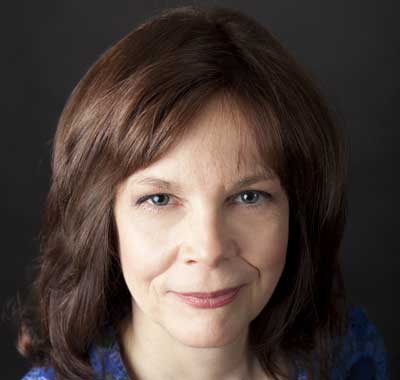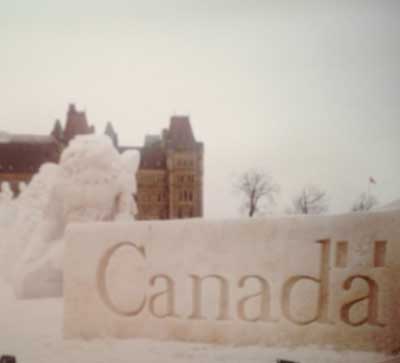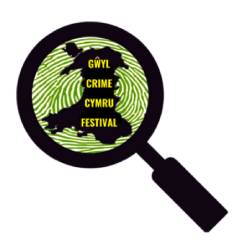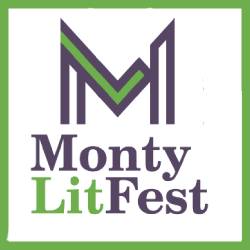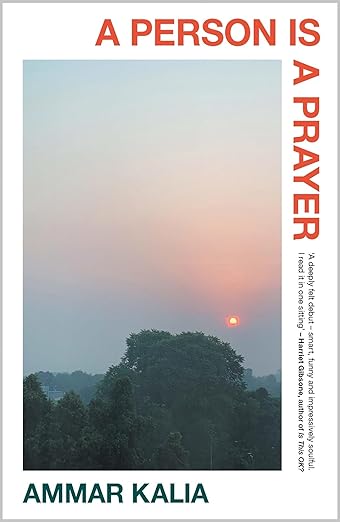Canada Q and A – Brenda Chapman
Today’s cuppa and cake takes us to Canada, Montreal to be precise to meet the lovely Brenda Chapman who has set her novel in the Ottawa police force. There’s a Native American character in the novel too which leads to some cultural problems and differences but then that just makes for an interesting twist on a police procedural.
Booktrail your literary journey to Cold Mourning here
You’ve written a series of mysteries but this is the first in the Stonechild and Rouleau series. What made you want to write this book?
Like many mystery readers, I am a fan of the police procedural series. Not only do I enjoy a suspenseful plot, but I also want to follow the development of characters and their relationships. My first adult murder mystery, In Winter’s Grip (Dundurn 2010) was a standalone, but I knew that this was a warm up to creating a series where I could take the characters and readers on a longer journey. In Kala Stonechild and Jacques Rouleau, I’ve created two complex, flawed cops who are intelligent and interesting enough to make me want to keep writing about them.
How important is your snowy Ottawa setting to the plot?
For me, two of the most important aspects of the reading experience are to feel empathy for characters and to feel a strong sense of place. I studied poetry in university and have always been moved by the evocative use of language—words that bring me into the setting along with the characters and feel what they are feeling. One of my goals in writing this book was to describe Ottawa in winter well enough to have the setting feel like another character and for readers to experience something of what I feel when, for example, I step outside into a freezing winter evening or lie in bed at night, listening to the wind howl around the house.
How do you like Ottawa. I lived there for a short while and thought it amazingly friendly. Very pretty too with the feel of a small town. Where would Stonechild and Rouleau take me to in Ottawa?
I grew up in a small, isolated mill town of 2000 people on the north shore of Lake Superior, but moved to Ottawa after university. Ottawa is nearing a million people now, but still manages to maintain the small town, community feel with the countryside just a short drive away. With Ottawa as the setting forCold Mourning, this allows me to draw on both my small town and city experiences.
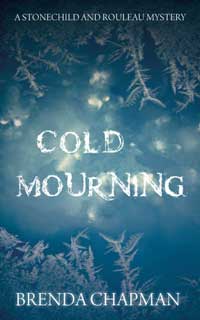
Stonechild and Rouleau would take you on an insider’s tour of the city: the mansions of Rockcliffe and the colourful Byward Market. We’d follow Elgin Street to the Canal through the Glebe into Chinatown, Little Italy, Hintonburg, and my own neighbourhood, Westboro. We could take a trip across the Ottawa River into Quebec for a drive to the Gatineau Hills—spectacular in autumn when the leaves turn colour.
How important was your Native American character Kala Stonechild. What you did try to show via her working relationship with Rouleau from the Ottawa police?
Kala Stonechild became the central character as I wrote Cold Mourning. I’d intended for her and Rouleau to have an equal share of the spotlight, but her storyline rose to the fore. Perhaps this is because Stonechild has such an interesting, disturbing past and she’s a newcomer to the police department. In addition, she’s out in the field investigating while Rouleau spends more time coordinating work back in the office. The fact that she is Native American, or Aboriginal as we say in Canada, is key to her character—her past is slowly be revealed throughout the series. The relationships that she develops with Rouleau and others on the force have room for a lot of intrigue, misunderstanding and conflict.
You create a lot of tension and twists and turns along the way. Did this novel take a lot of plotting?
I’m actually not a big plotter aside from broad strokes; for example, I decide on a crime, victim and perpetrator. I have an idea of the characters but they take shape as I write, sometimes with new ones appearing out of nowhere. Once the story gets going, I spend a good deal of time reworking scenes and thinking about the next chapter. This means that I sometimes have to rewrite sections later on to make everything fit.
What kind of research did you do?
The type and depth of research that I undertake depends on the project. In addition to writing, I work as a senior communications advisor for the federal government and so track stories about my files in the media. I’ve worked on Aboriginal files for the past four years, and while I cannot use anything I learned specific to these files, I can use the general knowledge I’ve gained through reading news articles and information available to the public. Kala Stonechild is the result.
To keep the storyline authentic, I had a retired Ottawa police officer read theCold Mourning manuscript to give me feedback on the crimes and clues. He gave me insight into the police working environment that I would not have had otherwise.
I also use Google maps extensively, but know Ottawa intimately since I’ve lived here over thirty years. Still, there is nothing like first-hand experience when it comes to writing about a location; I made two field trips to locations on the Rideau River to find the perfect location to kill off a character. My brave husband came along on the isolated walks through the woods, although I had to promise not to reenact any of the scenes.
Here in the UK, Canadian crime fiction can be somewhat overshadowed by that from American or Scandinavia. What makes Canadian fiction unique?
Great question. Every country has its own geography, history, customs and way of viewing the rest of the world. Canadians are no different in this regard, and our stories are no less fascinating.
Canadians are known for being polite and cooperative, but we are so much more than these traits. We come from explorer stock and have been shaped by a vast, rugged landscape with long winters and immense, untamed stretches of wilderness. The multi-faceted geography is evident the lives we lead. It has made us survivors and innovators; and while we’ve worked to control our environment, deep down we know that it is our environment that has the final say. A person living in Newfoundland has a much different reality than someone living in the Prairies, the Arctic or Montreal. We Canadian writers bring this wealth of multicultural experience, geography and flavour to our stories along with a haunting, intangible quality that is uniquely Canadian, and is shaped I think, by our closeness to the land. We also share a droll, dry sense of humour and an ability to see the absurdity in life.
You attend your ideal book fair and meet your 4 favourite authors or those who have inspired you. Who would they be?
When I was growing up in that small northern town, my favourite author was Enid Blyton—the Famous Five, the Secret Seven—her mystery stories shaped my love for working out clues and solving a good puzzle.
Harper Lee’s To Kill A Mockingbird is the novel that taught me about creating empathetic characters against the backdrop of a well crafted story. This was a book I read over and over when I was in high school.
Current day, I would love to while away an evening in the pub with Michael Connelly, Denise Mina, John Harvey and Liza Marklund, all writers whom I respect and admire for their great story-telling and believable, flawed characters.
Thanks Brenda for answering all those questions I’ve thrown at you! Very kind of you. I do like a good natter about a good book. I hope you’ve enjoyed the cake and tea. There’s more in the pot. Care for another slice of cake too?

